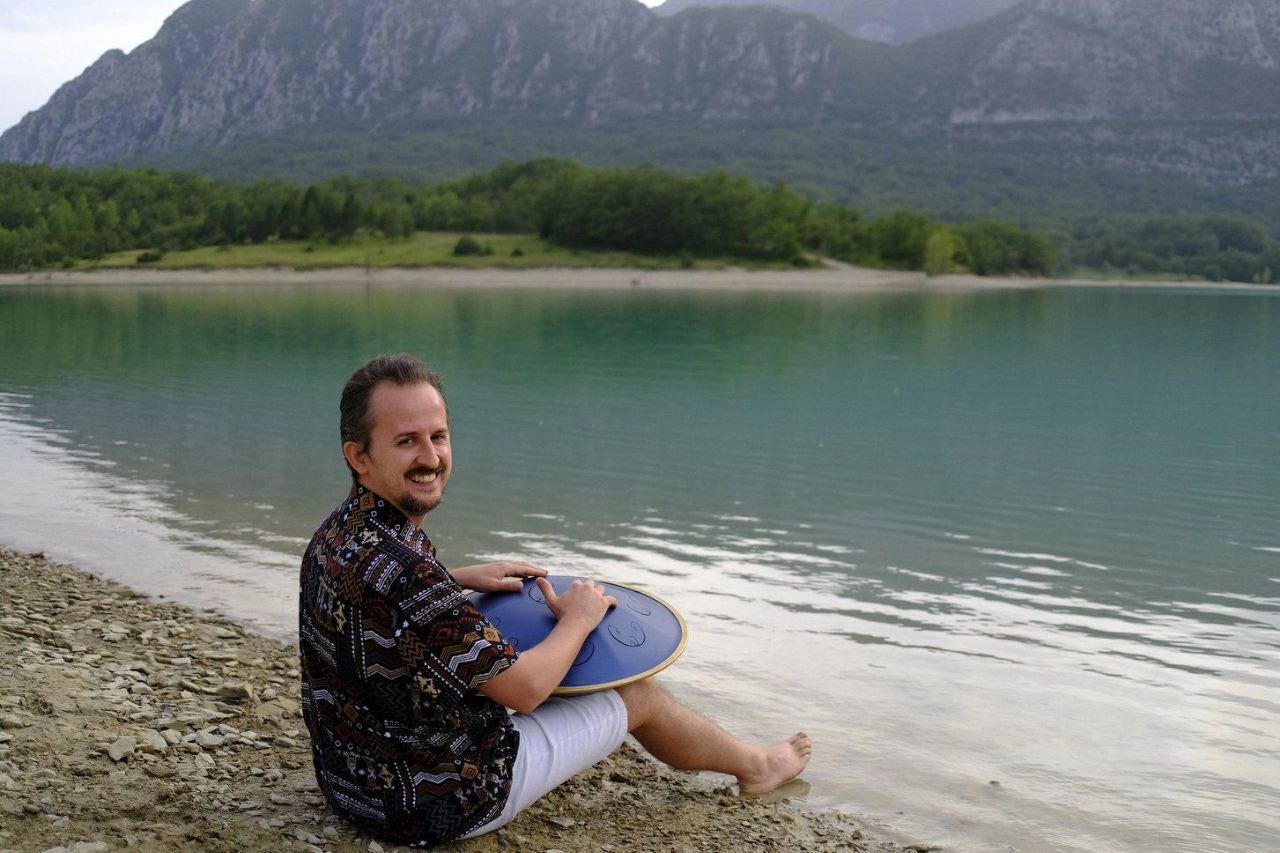Uncomposed: Breaking Free from the Digital Mind
Return to Childhood: When letting go becomes the only composition

It made me smile to find "Children of the World" in my digital archives. It took me back to those afternoons spent on GarageBand - that Apple software that makes you feel like a music producer even when you barely know how to put two notes together. A sonic playground where anyone can play with loops, effects, and virtual instruments, creating music with the same spontaneity we had as children building sandcastles.
It's curious how this discovery coincides with my recent return to the RAV VAST Drum. If you know it, you know what I'm talking about—that magical sound disc, cousin to the handpan, that seems to contain entire universes in its notes. Before, I always approached it with my usual obsession with composing, assembling, and needing to create something—the classic trap of the mind that must control, shape, and assign meaning.
But we know well what Vedanta teaches us about this, don't we? Sannyasa - that profound state of renunciation where we learn to act without being driven by desire or attachment, finding peace in the simple act of doing rather than wanting. And Tyaga - the practice of letting go of our attachment to outcomes, releasing our grip on what we think should happen and accepting what naturally unfolds. Easy to say, much more complex to live when you sit in front of an instrument and the mind immediately starts planning, wanting to direct, trying to impose its preexisting logic.
Yet that's exactly where the magic lies—in that moment when you stop wanting to control and let the sound emerge on its own. It's like when we were children and didn't need to make sense of everything, to categorize, to compartmentalize. The sound was sound, and the play was play, without additional superstructures.
The mind, this tireless producer of meanings, this compulsive seeker of sense... how much work do we make it do for nothing? How often do we lose ourselves in the obsession of having to give meaning to everything, when we could simply let things be?
"Children of the World" was born like that - from playing with GarageBand without pretence. And now the RAV VAST Drum is teaching me the same thing again: that freedom that comes from letting things flow, from not having to compose, structure, and control everything. It's like peeling back the mind, returning it to its origin. Becoming children again, yes - but not through regression, but rather through that natural wisdom we had before the mind began to complicate everything.
I created a piece with the RAV VAST D Celtic Minor, called “Mumukshu.” Soon, I'll share more free-flowing jam sessions with you. I hope you enjoy this composition and "Children of the World.” Happy listening.
“Children of the world”
“Mumukshu”
Feel free to leave a comment.
I have woven tales for anyone who cares to read them. My books await you on Google Books. You can also check out my stories on Medium.com.
I am eager to participate in research and produce content on Cross-Cultural Philosophy. Considering the many philosophy professors following Learn Vedanta Substack from universities across the five continents, I would be truly honoured to be involved in projects, as I have been recently approached. Please feel free to contact me.
I would be honoured if you considered subscribing to the Premium Contents of my Vedanta Substack and leaving feedback, comments, and suggestions on this page and by writing to me at cosmicdancerpodcast@gmail.com.



